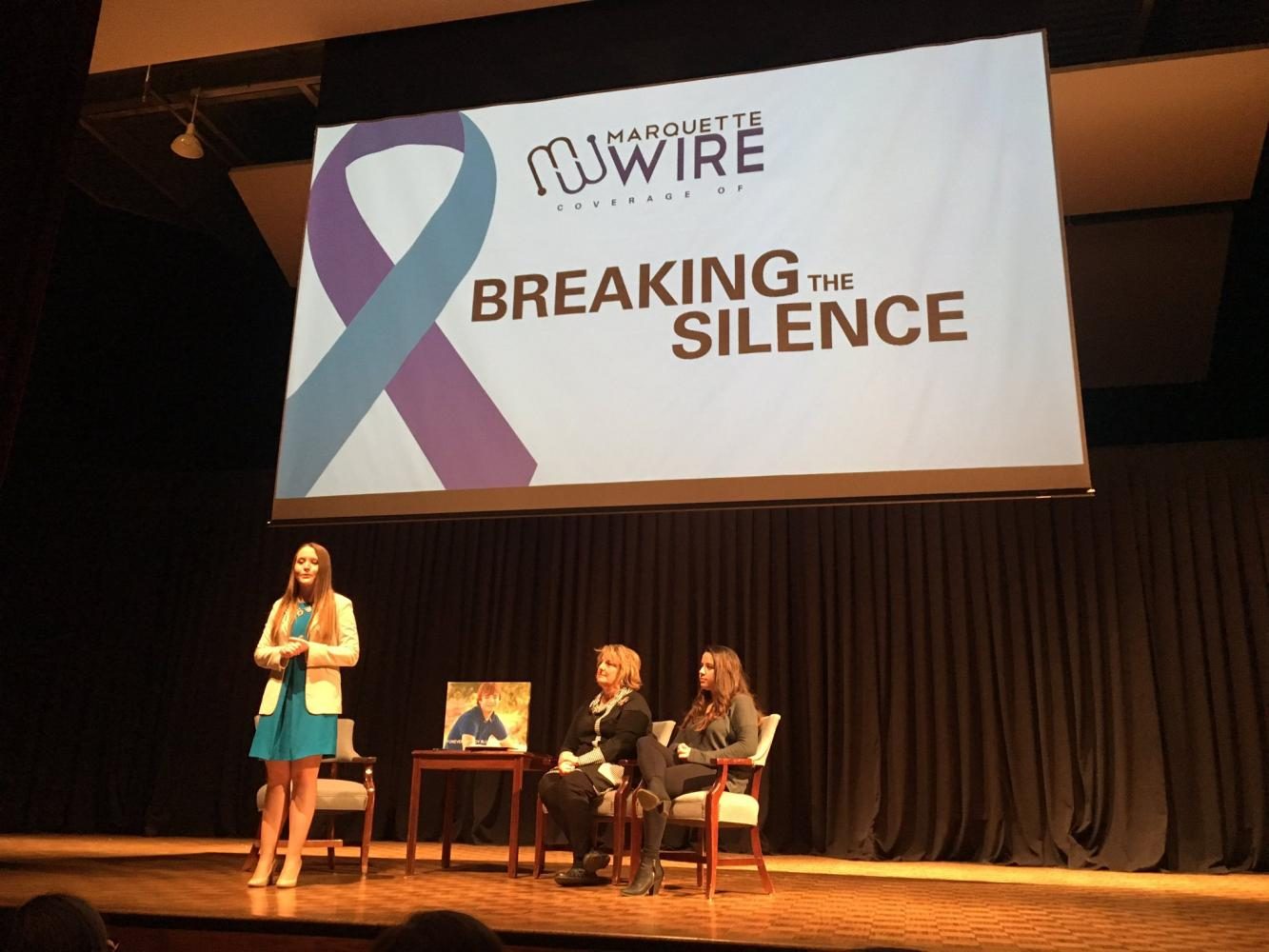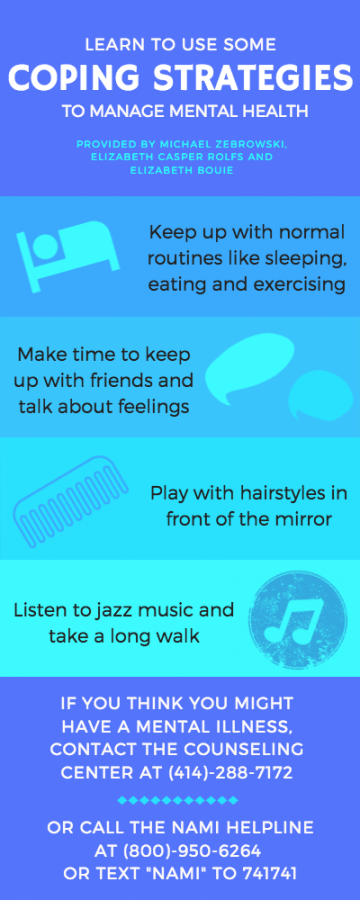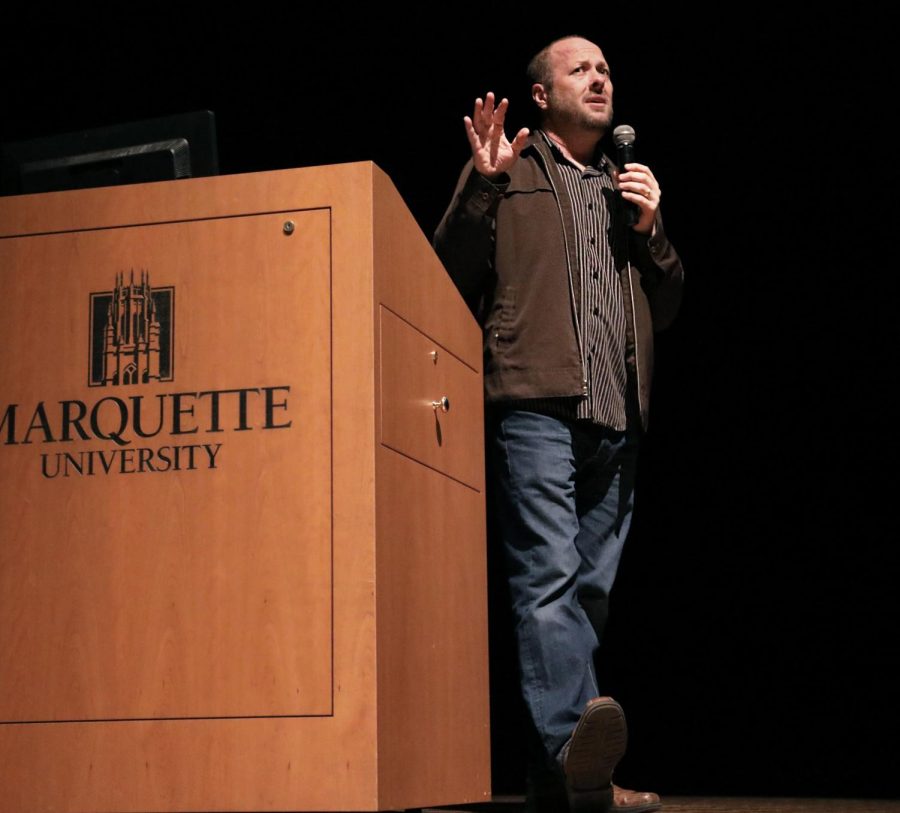A panel of speakers featuring Marquette students and mental health professionals gathered May 3 to speak candidly about suicide.
The Marquette Wire’s Breaking the Silence project culminated in a live television forum at the Weasler Auditorium. The forum featured representatives from the National Association for Mental Illness and the Marquette Counseling Center.
The forum opened with Marie Crowe and Claire Schuster. Crowe is a Marquette sophomore who has struggled with depression and suicide ideation in the past. She shared her story of contemplating suicide and the help that she sought to overcome the ideation.
“I really want to help those around me because nobody is ever really alone,” Crowe said. “Everybody is always there for you. Even though it might seem like you’re alone, and that it sucks right now, you’ll be okay.”
Crowe plans to participate in Marquette’s Summer Research Program to study mental health and help as many people as possible.
Schuster told the story of her son Timothy, who died by suicide in 2008. On the brink of tears, she recounted the events leading up to his suicide, including the death of his two close friends in a car accident.
The forum transitioned with a clip from Terry McGuire’s podcast, Giving Voice to Depression, as she and Dr. Barbara Moser entered the stage. McGuire hosts the podcast with her sister, Bridget, which discusses mental health to “make a difference rather than just make a living.” Moser is the chair of Prevent Suicide Milwaukee.
“If you’re sick from here down, from an ophthalmologist to a podiatrist, you can ask anybody,” McGuire said, pointing from her forehead to her feet. “But from (your forehead and) up? It’s all private. You’re not supposed to ask, you’re not supposed to talk and I find that insane because that’s still your body and that’s still your physical health.”
In a question and answer session, Moser stressed the importance of properly using medication as a coping method. Moser and McGuire both said that they struggled with depression.
The next transition was a poem written and read by Rachel Hartman of the Live Poets Society likening depression to raging waters.
REDgen’s Amy Lovell, the Counseling Center’s Michael Zebrowski and NAMI’s Peter Houffel then took the stage to talk about active listening and QPR training.
“A lot of times as humans, we want to fix a problem,” Houffel said. “When you’re actively listening to someone, that’s not the time to fix the problem. That’s the time to listen and let them know that you’re there for them.”
The panel fielded a question about finding the right fit between a therapist and a patient from Rachel Schneider, a senior in the College of Arts & Sciences.
“We talk a lot about resources and where to go, but don’t really explain the difficulty of finding the right therapist,” Schneider said.
Schneider said she was motivated to ask her question because a close friend recently had trouble finding a therapist.
The final part of the forum featured Marquette sophomore Jenny Fischer, who shared the story of how she coped with her mother’s suicide when she was 13. Fischer said that she shares her story to honor her mother’s life.
“At the end of the day, a suicide is a death,” Fischer said. “To silence it because of the means doesn’t really seem fair.”
Schuster also returned to talk about coping through faith and why she was glad that God chose her to be Timothy’s mother.
“His death will not be for nothing because this is going to save lives,” Schuster said with tears in her eyes.
Ben Wrucke, a junior in the College of Engineering and member of Sigma Epsilon, was in the audience.
“I think it was really great that there were people our age included in this rather than just mental health professionals,” Wrucke said. “It provided a lot of different perspectives on the issue.”














